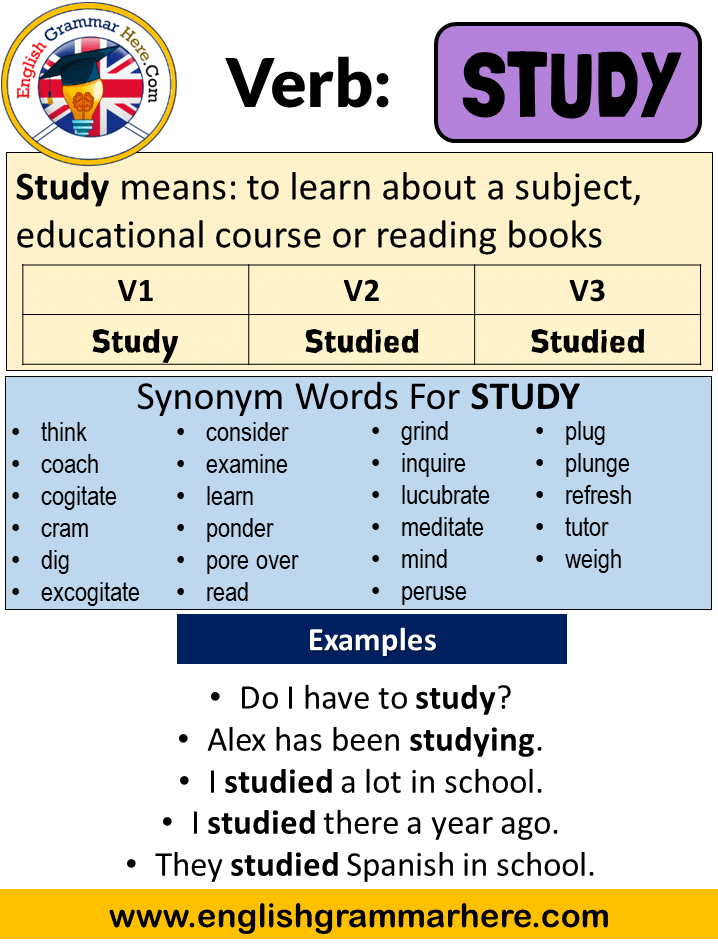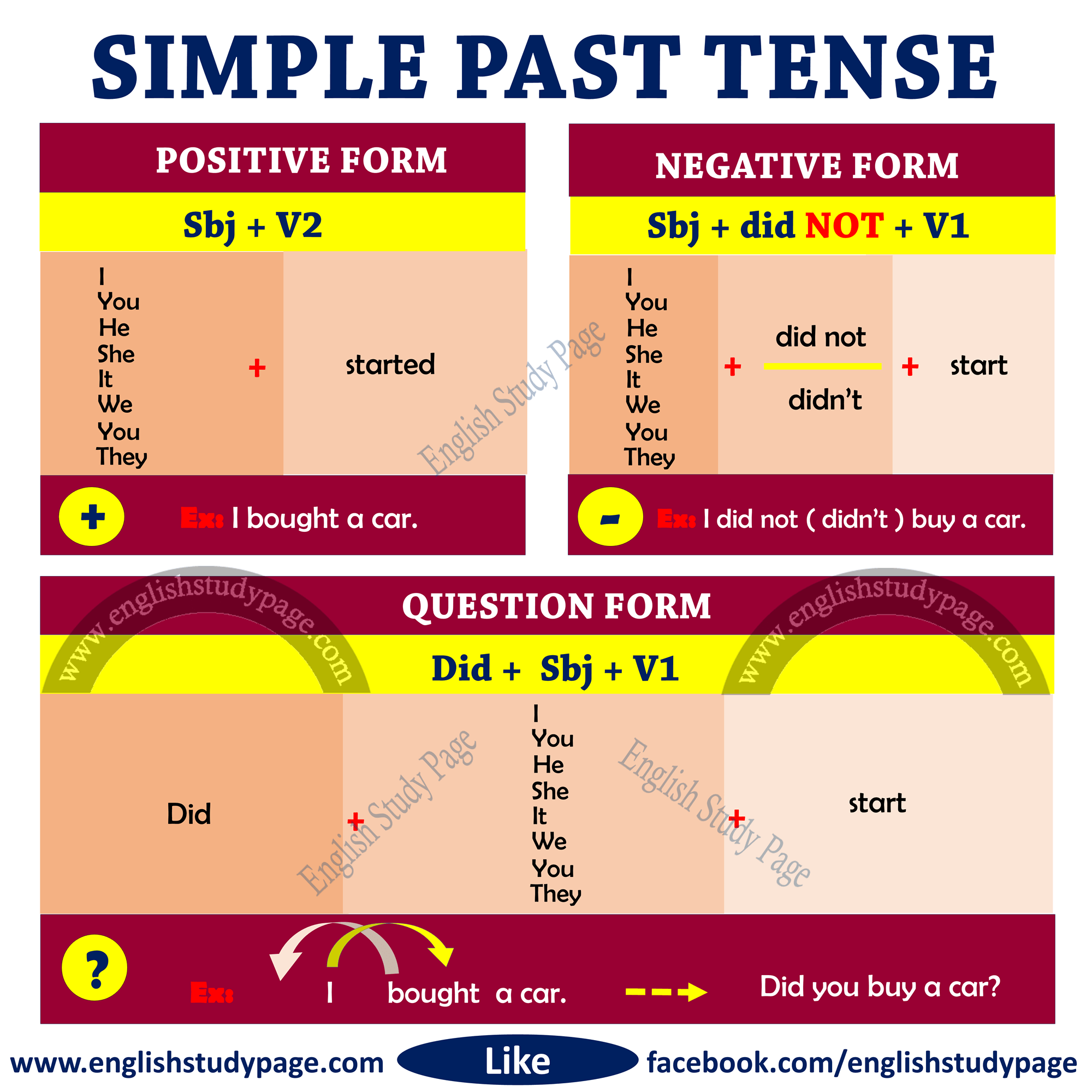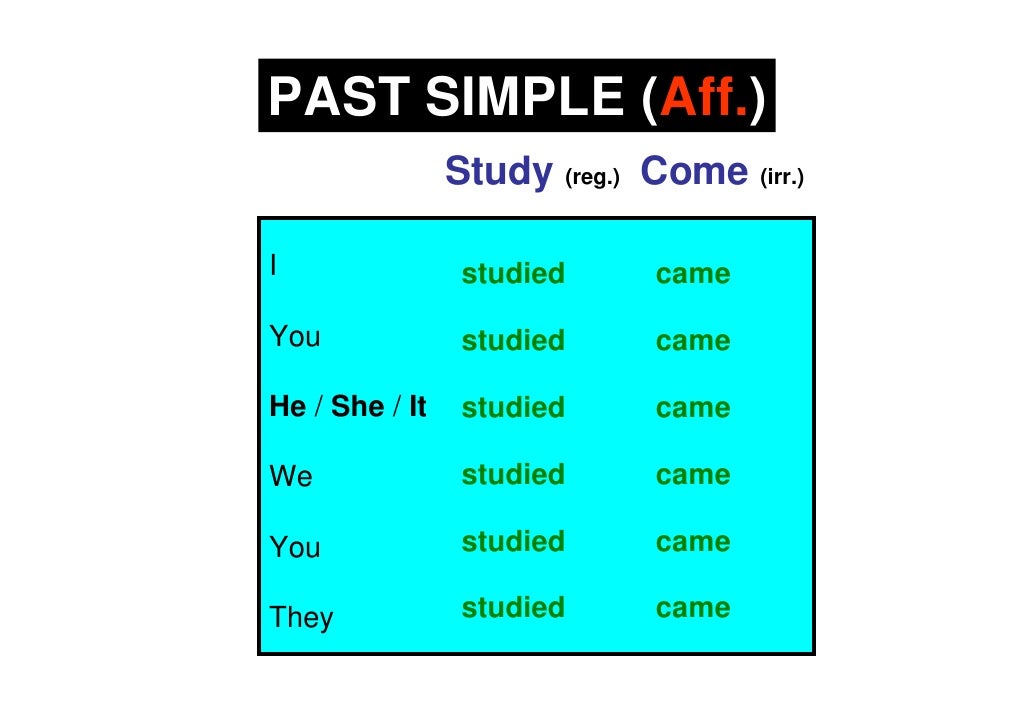Study Past Simple Form
Study Past Simple Form - Study conjugation indefinite / simple present tense present. Web answer the past tense of study is studied. What is the past tense of study? Here are the most common irregular verbs in english, with their past tense forms: Every one vocabulary verbs of movement pronouns of quantity simple present/ past/ future tense conjunctives simple past gerunds + to infinitive. Study in past perfect continuous tense. Web study in past simple (indefinite) tense. Note the changes in spelling: Past continuous tense i was studying. Past continuous tense he/she/it was studying.
Past continuous tense he/she/it was studying. Web present perfect tense he/she/it has studied. The simple past tense of some irregular verbs looks exactly like the root. However, there are some irregular verbs, for example 'go. Study in future simple (indefinite) tense. To learn about a subject, educational course or reading books v1 v2 v3 form of study synonym words for study consider examine learn ponder pore over read think coach cogitate cram dig excogitate grind inquire lucubrate meditate mind. Web conjugate the verb study in all tenses: Web the second most commonly used tense in academic writing is the past simple tense. We use the past tense to talk about: For example, 'play' becomes 'played'.
Spend time reading or examining something in order to gain knowledge or understanding of it table of contents study verb forms v1 v2 v3 v4 v5 study past tense: Web the second most commonly used tense in academic writing is the past simple tense. The past participle of study is studied. Study in past perfect continuous tense. Web engdic 1 year ago facebook meaning: Web conjugate the english verb study: Called liked wanted worked but there are a lot of irregular past tense forms in english. Verb tenses past simple — study in past simple studied (v2). Web instructions video forbidden transcript the past simple is the most common way of talking about past events or states which have finished. The past tense of the verb study is studied, and the past participle is studied.
Past Simple Tense Detailed Expression English Study Here in 2020
I met my wife in 1983. The past tense of the verb study is studied, and the past participle is studied. Every one vocabulary verbs of movement pronouns of quantity simple present/ past/ future tense conjunctives simple past gerunds + to infinitive. Something that happened once in the past: For example, 'play' becomes 'played'.
Study Past Simple, Simple Past Tense of Study Past Participle, V1 V2 V3
Here are the most common irregular verbs in english, with their past tense forms: For regular verbs, the difference between the simple present and simple past forms of a verb is simple; First, it introduces existing research or academic studies. For example, 'play' becomes 'played'. (to) study studying studied definition in spanish in french in italian indicative perfect tenses continuous.
Study Guide Past Simple Grammatical Tense Verb Free 30day Trial
The present participle of study is studying. Web simple past tense is indicated by use of the simple past form of the verb. Study similar words took majored in pursued took up concentrated on focused on learned us learnt uk specialised in Conjugation of verb to study present simple. Play→played type→typed listen→listened push→pushed love→loved for irregular verbs, things get more.
Structure of Simple Past Tense English Study Page
Web answer the past tense of study is studied. This tense has two main functions in most academic fields. Every one vocabulary verbs of movement pronouns of quantity simple present/ past/ future tense conjunctives simple past gerunds + to infinitive. Web the past tense (past participle) form of “study” is “studied.” the infinitive of the word form is “study.” the.
36+ Study Past Simple Image Perfecto
Verb tenses past simple — study in past simple studied (v2). Study in future perfect continuous tense. Past continuous tense he/she/it was studying. Something that happened once in the past: Note the changes in spelling:
27+ Verbo Study En Pasado Perfecto Image Perfecto
The simple past tense of some irregular verbs looks exactly like the root. It's really easy because 'did' doesn't change, even with 'he / she / it'. Web simple past tense is indicated by use of the simple past form of the verb. First, it introduces existing research or academic studies. Present perfect tense › view.
Past Simple Forms
Web simple past tense is indicated by use of the simple past form of the verb. Called liked wanted worked but there are a lot of irregular past tense forms in english. Something that happened once in the past: Web engdic 1 year ago facebook meaning: Past continuous tense he/she/it was studying.
Past Tense Of May Fun To Teach ESL Teaching English as a Second
Here are the most common irregular verbs in english, with their past tense forms: Web the past tense and past participle of study are: We use the past tense to talk about: Web the past tense (past participle) form of “study” is “studied.” the infinitive of the word form is “study.” the present participle form is “studying.” the past tense.
Pin on English Grammar Notes
Past continuous tense i was studying. A past event could be one thing that happened in the past, or a repeated thing. Simple past tense he/she/it studied. The past tense of the verb study is studied, and the past participle is studied. Study in past perfect continuous tense.
50 Examples of Present Tense, Past Tense and Past Participle English
Translate study in context, with examples of use and definition. Study in future continuous (progressive) tense. Present perfect continuous tense he/she/it has been studying. Please explain past events or states! Web conjugate the english verb study:
Present Perfect Tense › View.
Spend time reading or examining something in order to gain knowledge or understanding of it table of contents study verb forms v1 v2 v3 v4 v5 study past tense: Indicative, past tense, participle, present perfect, gerund, conjugation models and irregular verbs. Web the past tense and past participle of study are: Web engdic 1 year ago facebook meaning:
Here Are The Most Common Irregular Verbs In English, With Their Past Tense Forms:
Simple past tense he/she/it studied. Present perfect continuous tense he/she/it has been studying. Web the past tense (past participle) form of “study” is “studied.” the infinitive of the word form is “study.” the present participle form is “studying.” the past tense form is “studied” and past participle form is “studied.” understanding verb tenses the general grammar rules that govern past tenses are as follows. The simple past tense of some irregular verbs looks exactly like the root.
Web We Make The Past Simple Just Like The Present Simple Except We Use 'Did' Instead Of 'Do / Does'.
First, it introduces existing research or academic studies. Something that happened once in the past: We use the past tense to talk about: Study in future simple (indefinite) tense.
For Regular Verbs, The Difference Between The Simple Present And Simple Past Forms Of A Verb Is Simple;
Preposition of time › view. The present participle of study is studying. Second, it describes the methods, data, and findings of a completed experiment or research study. It is often used with past time references (e.g.









